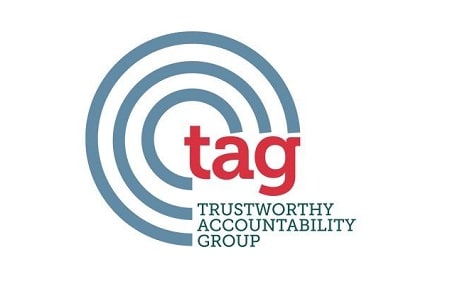
The Trustworthy Accountability Group (TAG), an advertising industry initiative to fight criminal activity in the digital advertising supply chain, today released the first analysis of the effectiveness of ongoing industry anti-fraud efforts in Europe. The study, conducted by The 614 Group, found
The study compared invalid traffic (IVT) rates in TAG Certified Channels against industry norms by measuring approximately four billion ad impressions from January-August 2018 from three major advertising agency holding companies across the United Kingdom, Germany, France, Italy, and The Netherlands. The results found a dramatic reduction in fraud rates across European markets from an industry average of 8.99 percent to just .53 percent when using TAG Certified Channels.
“Ad fraud is a global problem, and addressing it will require our industry to work together across national and regional borders,” said Mike Zaneis, CEO of TAG. “Happily, this study demonstrates that the industry has developed an effective and scalable solution, and Europe is leading the way. This study proves the effectiveness of TAG’s Certified Against Fraud Program in fighting fraud across European markets, both independently and through collaborative efforts like TAG’s partnership with JICWEBS in the UK. By continuing to adopt TAG’s rigorous anti-fraud standards, we can stop criminals who profit from ad fraud and ensure a safe and clean supply chain across the world.”
Summary of European Fraud Benchmark Research
| Countries Included | UK, France, Germany, Italy, The Netherlands |
| Study Period | January – December 2018 |
| Inventory Type | Desktop display, desktop video, mobile web display,
mobile web video |
| Number of Impressions | 4.01 billion |
| Types of Fraud Examined | General Invalid Traffic (GIVT)
Sophisticated Invalid Traffic (SIVT) |
| SIVT + GIVT Rate (TAG Channels Only) | 0.53 percent |
| Overall Fraud Rate (Blended Benchmark) | 8.99 percent |
| Reduction in Fraud | 94.1 percent |
| Agency Holding Companies Involved in Study | Annalect (Omnicom Media Group), GroupM, Publicis Media |
TAG first commissioned The 614 Group to conduct a benchmarking study of the US market to examine the effectiveness of the TAG Certified Against Fraud Program in December 2017, and it conducted and released a follow-up study with The 614 Group earlier this fall. Both studies showed a dramatic reduction in fraud across TAG Certified Channels.
“This report answers the call for a clear fraud benchmark for the European market which will serve as a baseline for measuring progress for years to come,” said Rob Rasko, CEO of The 614 Group and project lead on the research. “The results of this study will help us better quantify and understand the success of industry anti-fraud efforts. I’m elated with the level of participation from the industry and look forward to seeing continuing progress like we have made in working with TAG in continuing to help eliminate the issue of ad fraud across the European markets.”
TAG launched its Certified Against Fraud Program to combat invalid traffic in the digital advertising supply chain. Companies that are shown to comply with the Certified Against Fraud Guidelines are awarded the Certified Against Fraud Seal, which they can use to publicly communicate their commitment to combatting fraud. The Certified Against Fraud Program also provides companies a suite of anti-fraud tools to aid in compliance:
- The Payment ID System creates a chain of custody for digital advertising transactions, helping companies to ensure that payments made in the digital ad ecosystem are going to legitimate partners.
- The Data Center IP List is a common list of IP addresses with invalid traffic coming from data centers where human traffic is not expected to originate. TAG publishes this list on a monthly basis to assist companies in meeting the requirement in the Certified Against Fraud Guidelines that companies employ data center IP threat filtering across all of the monetizable transactions that they handle.
- The Publisher Sourcing Disclosure Requirements (PSDR) foster trust in the marketplace by disclosing the amount of sourced traffic for a given publisher. This policy tool outlines the requirements for publishers to disclose the volume of traffic acquired through paid sources.
- The Ads.txt Specificationcreates greater transparency in the inventory supply chain by creating a public record of Authorized Digital Sellers, giving publishers greater control over their inventory in the market, and making it harder for bad actors to profit from selling counterfeit inventory across the ecosystem.
In the UK, TAG has partnered with the Joint Industry Committee for Web Standards (JICWEBS), and they have jointly agreed to adopt the TAG Certified Against Fraud Program in the UK beginning January 1, 2019.
Additional information about TAG’s Certified Against Fraud Program and how companies from across the advertising ecosystem can received the TAG Certified Against Fraud Seal can be found at https://www.tagtoday.net/certified-against-fraud-program/. The full study can be found at https://www.tagtoday.net/european_fraud_benchmark_research_2019.
Methodology
The 614 Group assessed the rate of Invalid Traffic (IVT) in approximately four billion digital ad impressions across display, video, and mobile inventory that ran from January through December 2018. Aggregated inputs including all data from submitted actual campaigns (not a sample) executed by three of the world’s largest agency holding companies, including Annalect Consulting, GroupM, and Publicis Media.
All of the impressions were delivered via TAG Certified channels in which multiple entities involved in the transaction – such as the media agency, buy-side platform, sell-side platform and/or publisher – had achieved the TAG Certified Against Fraud Seal. The impressions were measured for fraud by vendors including DoubleVerify and Integral Ad Science. These anti-fraud measurement vendors are TAG Certified Against Fraud and hold accreditations from the Media Rating Council (MRC) for both General Invalid Traffic (GIVT) and Sophisticated Invalid Traffic (SIVT) measurement.
The study compared the TAG Certified baseline to a blended benchmark of the publicly reported fraud rates reported by DoubleVerify, Forensiq, Integral Ad Science, and White Ops.
